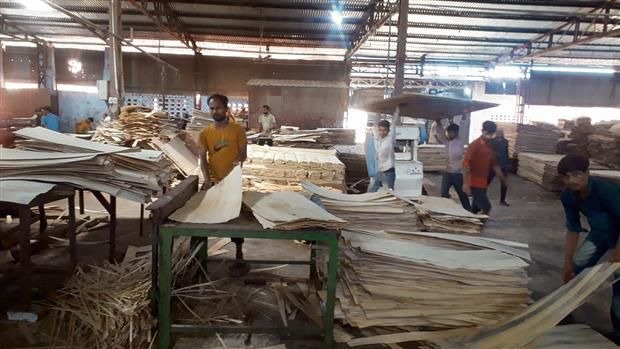Due to the excessive rise in the price of labor and wood, the Haryana Plywood Manufactures’ Association has raised the costs of all varieties of plywood, block boards, and flush doors by 5%.

According to information that is currently accessible, poplar wood prices are around Rs 1,700 per quintal this time, compared to over Rs 1,400 per quintal in September 2023. Industry sources said that the shortage of poplar wood has resulted in higher prices.
financial crisis hits Yamunanagar industries
Yamunanagar’s plywood sector has been in severe financial distress since the Covid-19 epidemic broke out. The market charge was lowered from 2% to 1% by the previous chief minister. But in order to sustain the industry, this 1% market charge should also be eliminated. —president of the Haryana Plywood Manufacturers’ Association is JK Bihani.
Prior to the Covid-19 lockout, Yamunanagar district plywood firms were receiving a daily supply of over 2 lakh quintals of poplar wood.
According to sources, the district’s plywood sector has been receiving around one lakh quintals of poplar wood every day for a few years now because of a severe decline in poplar seedling plantations. Plywood in the neighborhood is mostly made from poplar and eucalyptus wood by the industry.
Last year, former chief minister Manohar Lal Khattar lowered the market tax on wood used by the plywood sector from 2% to 1% in response to the association’s demands.
Yamunanagar’s plywood sector has been in severe financial distress since the Covid-19 epidemic broke out. The market charge was lowered from two percent to one percent by the previous CM. But in order to sustain the sector, this 1% market charge should also be eliminated, according to organization president JK Bihani.
According to him, a team from an organization paid Chief Minister Nayab Singh Saini a visit recently and demanded that the market charge be eliminated. Bihani said that if the technical-grade urea samples collected from plywood industries failed, they also asked that no formal complaint be filed against the proprietors of such facilities.
The proprietors of plywood factories purchase technical-grade urea from dealers, paying them according to the market price of the material. Bihani said that dealers should be held accountable rather than the owners of the plywood firms if the Agriculture Department’s technical-grade urea tests from industries turn out to be defective and include agricultural-grade urea. There are over 700 band mills, chipper plants, and 350 plywood industries in the Yamunanagar area.